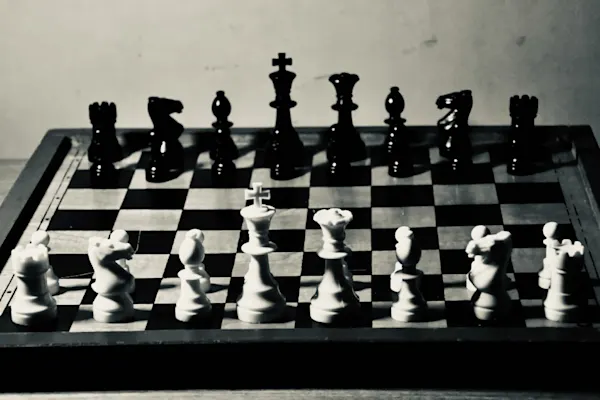High-Conflict Case Resolution Services

Understanding High-Conflict Cases
High-conflict legal matters are characterized by intense emotions, hostile communication patterns, and resistance to conventional resolution methods. These cases often involve one or more participants who demonstrate persistent patterns of blame, distorted thinking, extreme behaviors, or emotional reactivity that impede reasonable negotiations.
Unlike standard legal cases where rational negotiation typically leads to resolution, high-conflict cases require specialized approaches that address both legal issues and the underlying psychological factors driving the conflict. Without proper management, these cases can continue for years, consuming extraordinary financial and emotional resources while producing increasingly negative outcomes for all involved.
Recognizing the difference between routine legal disagreement and true high-conflict dynamics is the first step toward effective resolution. Our attorneys have extensive training in identifying high-conflict patterns and implementing appropriate strategies to manage them constructively while still achieving favorable legal outcomes for our clients.
Signs of High-Conflict Cases
Understanding whether you're involved in a high-conflict case helps determine the appropriate legal approach. Common indicators include:
Persistent Pattern of Conflict
High-conflict cases typically show a history of disputes that escalate rapidly and resist resolution despite reasonable offers. The conflict often predates the current legal issue and maintains a consistent pattern regardless of changing circumstances or attempted interventions.
Extreme All-or-Nothing Positions
Participants in high-conflict cases frequently maintain rigid, extreme positions without consideration of compromise or practical realities. They may reject reasonable offers that would serve their own interests solely to prevent the other party from achieving any perceived "win."
Intense Emotional Reactions
Emotional responses in high-conflict cases typically exceed what would be expected given the circumstances. Minor issues trigger major reactions, and emotional intensity remains high despite the passage of time that would normally allow for adjustment and perspective.
Personality-Driven Dynamics
Many high-conflict cases involve individuals with traits associated with personality disorders, including black-and-white thinking, inability to accept responsibility, chronic blaming of others, dramatic emotional swings, manipulation tactics, and resistance to change despite negative consequences.
Repeated Court Filings
High-conflict cases often generate excessive legal proceedings, with parties filing numerous motions, repeatedly raising the same issues in different forms, and returning to court shortly after previous matters are resolved. This pattern creates a revolving door of litigation that drains resources without producing lasting resolution.
Our High-Conflict Resolution Approach

Thorough Assessment and Strategic Planning
We begin with comprehensive case assessment to identify conflict patterns, underlying issues, and potential triggers. This analysis informs a strategic plan that addresses both legal objectives and conflict management, creating a roadmap for moving forward effectively despite challenging dynamics.
Structured Communication Protocols
High-conflict cases require careful communication management. We implement structured protocols that minimize direct hostile interactions, focus communications on specific issues rather than emotions, and maintain clear documentation of all exchanges. These protocols help prevent escalation while creating a record that strengthens your legal position.
Reality Testing and Expectation Management
We provide honest, straightforward guidance about realistic outcomes based on legal standards and precedent. This reality testing helps counterbalance the distorted thinking often present in high-conflict situations and establishes realistic expectations that guide decision-making throughout the case.
Strategic Use of Court Interventions
When necessary, we utilize targeted court interventions, including requests for judicial management, appointment of neutral experts, specific court orders addressing problematic behaviors, and other procedural tools that provide structure and accountability within the legal process.
Team Approach for Complex Cases
Particularly challenging cases benefit from our team approach, combining attorneys with different strengths and perspectives alongside appropriate professionals such as financial experts, mental health consultants, parent coordinators, or other specialists who contribute expertise in managing specific aspects of high-conflict dynamics.
Types of High-Conflict Cases We Handle

High-Conflict Divorce
Divorces involving high-conflict dynamics require specialized approaches that address both legal issues and behavioral patterns. We help clients navigate these challenging proceedings while protecting their interests, managing emotional strain, and working toward practical resolutions that allow for post-divorce stability.
Complex Custody Disputes
When parenting responsibilities become battlegrounds, children suffer the greatest harm. Our approach to high-conflict custody cases emphasizes child well-being while addressing parental concerns through structured negotiations, appropriate use of expert evaluations, and development of detailed parenting plans that minimize conflict triggers.
Co-Parenting Challenges
Ongoing co-parenting with a high-conflict individual presents unique challenges that extend beyond the initial divorce or custody determination. We help clients establish workable co-parenting frameworks, implement communication structures that reduce conflict, and develop strategies for managing difficult interactions while maintaining focus on children's needs.
Specialized Strategies for High-Conflict Resolution

BIFF Response Method
We employ the BIFF methodology (Brief, Informative, Friendly, Firm) to help clients respond effectively to hostile or provocative communications. This structured approach prevents escalation while maintaining appropriate boundaries and focusing interactions on necessary information rather than emotional content.
Parallel Parenting Structures
In cases where co-parenting cooperation remains impossible despite intervention, we help implement parallel parenting arrangements that minimize direct interaction while ensuring children's needs are met. These structures provide detailed guidelines for handling transitions, decisions, and information-sharing with minimal direct contact.
Strategic Use of Alternative Dispute Resolution
Even in high-conflict cases, certain forms of alternative dispute resolution can be effective when properly structured. We utilize specialized mediation approaches, judicial settlement conferences, early neutral evaluation, and other interventions specifically adapted for high-conflict dynamics.
Detailed Written Agreements
High-conflict cases benefit from extraordinarily detailed written agreements that leave minimal room for interpretation or manipulation. We develop comprehensive documents that anticipate potential issues, clearly define terms and responsibilities, and establish specific consequences for non-compliance.
Implementation of Professional Controls
When appropriate, we incorporate professional oversight mechanisms such as parent coordinators, special masters, financial managers, or other neutral professionals who provide ongoing monitoring and rapid intervention for specific aspects of high-conflict situations.
The High-Conflict Resolution Process
Initial Containment Phase
The first priority in high-conflict cases is containing escalation and establishing basic stability. During this phase, we implement immediate protective measures, establish communication protocols, and address any urgent issues requiring court intervention. This foundation creates space for more substantive resolution work.
Assessment and Strategy Development
With basic stability established, we conduct thorough assessment of both legal and interpersonal dimensions, identifying specific patterns, triggers, and underlying issues driving the conflict. This comprehensive understanding informs development of a tailored strategy addressing both immediate concerns and long-term resolution objectives.
Focused Issue Resolution
Rather than attempting to resolve all issues simultaneously, we often employ a sequential approach that addresses matters individually through a structured process. This focused method prevents the overwhelming complexity that can derail progress in high-conflict cases and allows for incremental success that builds momentum toward broader resolution.
Implementation with Accountability
As agreements are reached or court orders issued, we establish clear implementation frameworks with specific timelines, responsibilities, and accountability measures. These structured approaches help prevent the non-compliance and deliberate misinterpretation common in high-conflict cases.
Long-Term Stability Planning
Achieving initial resolution in high-conflict cases is not sufficient; arrangements must also support ongoing stability. We help clients develop long-term strategies for maintaining boundaries, managing future interactions, and implementing modified approaches as circumstances change over time.
Support Systems for High-Conflict Cases
Emotional Support Resources
The emotional toll of high-conflict litigation can be substantial. We connect clients with appropriate support resources including specialized therapists, support groups, and other services that provide emotional reinforcement throughout the legal process.
Documentation Systems
High-conflict cases require meticulous documentation of all interactions, agreements, and incidents. We help clients implement effective documentation systems that maintain essential records while avoiding the trap of excessive focus on cataloging grievances.
Personal Boundary Development
Managing ongoing interaction with a high-conflict individual requires strong personal boundaries. We provide guidance on establishing and maintaining appropriate boundaries that protect our clients' well-being while fulfilling necessary legal and practical obligations.
Self-Care Strategies
The stress of high-conflict legal proceedings can impact physical and emotional health. We emphasize the importance of self-care practices that maintain our clients' resilience throughout what can be a lengthy process, providing practical recommendations tailored to individual circumstances.
Why Choose Our High-Conflict Resolution Team
Specialized Training
Our attorneys have received specific training in high-conflict case management, including approaches for addressing personality disorders in legal contexts, specialized communication techniques, and advanced negotiation strategies for resistant parties. This specialized knowledge builds upon our strong foundation of legal expertise.
Emotional Intelligence
Effectively managing high-conflict cases requires not just legal skill but also emotional intelligence and interpersonal awareness. Our team demonstrates the patience, perspective, and psychological insight necessary to navigate charged emotional dynamics while maintaining strategic focus.
Litigation Strength When Necessary
While we emphasize resolution when possible, we maintain the litigation strength necessary for cases that cannot be settled through negotiation. Our courtroom experience ensures that when adversarial proceedings become necessary, you have powerful advocacy that presents your position effectively.
Collaborative Professional Relationships
We maintain working relationships with mental health professionals, financial experts, parent coordinators, guardians ad litem, and other specialists who provide additional dimensions of support in complex cases. These collaborative connections allow us to assemble the right team for your specific situation.

If you are involved in or anticipating a high-conflict legal matter, early intervention with appropriate representation can significantly impact outcomes. Contact our high-conflict resolution team to schedule a consultation where we can assess your situation and discuss strategic approaches tailored to your specific circumstances.
Our goal is to help you navigate these challenging legal waters with dignity, protecting your interests while working toward resolutions that allow you to move forward from conflict toward a more stable future.













